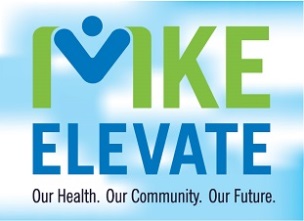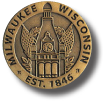COMMISSIONER OF HEALTH
Recruitment #1801-5866-001
| List Type | Exempt |
|---|---|
| Requesting Department | HEALTH DEPARTMENT |
| Open Date | 1/30/2018 4:30:00 PM |
| Filing Deadline | 3/9/2018 11:59:00 PM |
| HR Analyst | Kristin Urban |
Introduction
As a member of the Mayor’s Cabinet, the Commissioner of Health is appointed by and serves at the pleasure of the Mayor; the appointment of the Commissioner of Health requires confirmation by the Common Council.
Located on the western shore of Lake Michigan, Milwaukee is an urban hub bursting with energy. Milwaukee provides a casual sophistication – big city appeal without the big-city hassles. We are accessible and affordable and our residents are welcoming. Milwaukee brings together its unsurpassed old world charm with a breathtaking art museum, top-flight arts and cultural attractions, professional sports, lakefront festivals, recreational opportunities and great restaurants.
Purpose
The Position
The City of Milwaukee is seeking an energetic, proactive public health leader to set the strategic direction of the Milwaukee Health Department (MHD) and to provide outcome-based, highly accountable leadership. The Commissioner of Health must be accessible to stakeholders in public health, including staff and policy makers, and must thrive in an environment in which building strong partnerships within the community in support of public health initiatives and services is a priority.
The Commissioner has overall responsibility for public health assessment, policy development and quality control activities associated with the preservation of the public health in the City of Milwaukee. Specifically, the Commissioner of Health provides strategic leadership and direction in assessing community health needs as well as developing and implementing a community health improvement plan, including addressing root causes of poor health and health disparities, preventing and controlling communicable and chronic diseases, promoting reproductive health, healthy child development and school readiness, reducing illness and injury related to the home environment and promoting healthy behaviors and access to health services for all residents.
The Milwaukee Health Department
Since 1867, the City of Milwaukee Health Department has served the residents of the City of Milwaukee, seeking to improve and protect the health of all who live, work and play within the City. One hundred and fifty years later, the MHD remains steadfast in this mission. As the largest local health department in the state of Wisconsin, the MHD now serves nearly 600,000 citizens through direct services, evidence-based programs, partnerships, and policy development. The MHD’s work focuses upon the foundational activities of public health – those actions that local health departments are required to perform - such as communicable disease control, environmental public health inspections and community health assessment and planning.
Alongside these efforts, the MHD works to identify and address health outcomes that disproportionately burden Milwaukee residents. These select issues are those known to have a large-scale impact on health, are supported by substantial data and can be addressed by effective governmental public health mitigation strategies. Locally, the issues that rise to significance include supporting healthy birth outcomes, teen pregnancy prevention, childhood lead poisoning prevention and violence prevention. Across these foundational activities and strategic issues, the goals of MHD activities are to:
- control and prevent disease
- promote health and wellbeing across the lifespan
- ensure safe and healthy living environments and
- support public health planning and policy development.
In 2017, the MHD launched two major initiatives that support these goals: the MKE Elevate Community Health Improvement Plan and the Blueprint for Peace Violence Prevention Plan. Both efforts promote a public health approach to addressing key health issues and the social determinants of health. These initiatives provide a solid foundation that furthers the MHD’s mission and represent the type of collaborative, community-based work for which the MHD is known.
An annual budget of approximately $14M, a multidisciplinary team of over 250 public health employees and strong partnerships with private providers, community agencies and educational institutions create an effective framework to monitor, identify and prevent community health hazards, to educate the public about emerging health issues and to enforce laws and regulations to protect health and to ensure safety.
Further information on the MHD, its programs and initiatives, including the MKE Elevate Community Health Improvement Plan and the Blueprint for Peace Violence Prevention Plan, can be found on the MHD website: http://city.milwaukee.gov/Health and on the City of Milwaukee Budget Office web page: http://city.milwaukee.gov/ImageLibrary/User/crystali/Budget-Books/2018_Adopted_Budget_Summary.pdf; pp. 91-102.
Essential Functions
- Standards and Strategic Leadership: Provide leadership and establish and enforce accountability mechanisms for all divisions in the MHD, including Family and Community Health Services, Disease Control and Environmental Health, Consumer Environmental Health and Laboratory Services, as well as for Nursing Practice and Public Health Planning and Policy. Lead the MHD in organizational strategic planning and monitor progress and informatics toward strategic goals; ensure that MHD leadership participates in and facilitates ongoing community health assessment and planning in partnership with other community stakeholders. Direct the pursuit of funding from public and private sources to address health priorities identified through organizational strategic planning and community health assessments. Direct organizational efforts to achieve and maintain local health department accreditation from the Public Health Accreditation Board. Lead strategic planning efforts related to assessing public health needs, developing public health policy, ensuring that the public, non-profit and private sector collaborate to advance initiatives and providing direct services.
- Compliance and Accountability: Ensure that public health programs are administered in a manner consistent with public health laws and regulations and that public health laws are enforced fairly and consistently. Ensure complaints and concerns are addressed in a timely manner and that staff meets regularly with the community to obtain feedback about how to improve regulatory policies and decision-making.
- Public Health Education and Advocacy: Support research and teaching collaborations with academic partners of the MHD, including the UW-Milwaukee Zilber School of Public Health, the Medical College of Wisconsin, the University of Wisconsin-Madison School of Medicine and Public Health and other relevant academic partners. Educate local, state and federal policymakers about funding and policy changes needed to address current and emerging public health issues. Direct MHD participation in research activities with academic and practice partners to increase the evidence base for public health practice, including presenting at scientific conferences and participating in peer-reviewed journals. Maintain active involvement in peer professional organizations, such as the National Association of County and City Health Officials and the American Public Health Association. Draft and review local public health regulations that address emerging public health problems. Mobilize support amongst the public and policymakers for public policy changes that will positively impact community health.
- Management of Leadership Team: Coach, support and assess managers to help them achieve organizational and professional improvement goals; identify and implement measures of success and accountability. Create and promote leadership development and succession planning opportunities. Continuously monitor organizational climate to ensure a high level of staff morale and accountability of staff to the organizational mission and vision as well as to processes and outcomes.
- Public Health Emergency Response: Oversee tactical incident command and crisis communication related to public health emergencies. Ensure responses are research based, addressed quickly and efficiently and communicated in a timely and effective manner to the public. Work collaboratively with staff, the community and academic and governmental partners to prevent further occurrences and/or to anticipate and respond appropriately to threats to community health.
- Community Engagement and Collaboration: Communicate regularly and responsively with managers, staff, policy makers, and other stakeholders, including the public, through in-person meetings, community forums and other venues to ensure access and accountability for MHD functions and services. Cultivate and maintain partnerships with public sector, private sector, not-for-profit and academic stakeholders to build and promote public health initiatives. Ensure that the MHD has mechanisms and strategies for obtaining feedback and input from persons with diverse backgrounds and ensure the consideration of the role of cultural, social and behavioral factors in the accessibly, availability, acceptability and delivery of public health services. Serve as the primary spokesperson for the MHD on public health issues or identify other subject matter experts for that role within the organization, based upon the topic.
Reasonable accommodations requested by qualified individuals with disabilities will be made in accordance with the Americans with Disabilities Act (ADA) of 1990, as amended by the Americans with Disabilities Act Amendments Act (ADAAA) of 2008.
Minimum Requirements
A. The minimum requirements for a Level III local health officer are established by Wis. Stat. § 251.06 (1) (c). Chapter 17-02 of the Milwaukee Code of Ordinances confers the duties of health officer upon the Commissioner of Health. Accordingly, qualified candidates must possess one the following (i.e. 1, 2 or 3a, 3b or 3c).
- A master’s degree in public health, public administration, health administration or, as defined in rules promulgated by the department, a similar field and three years of experience in a full−time administrative position in either a public health agency or public health work.
- A bachelor’s degree and 16 graduate semester credits towards a master’s degree in public health, public administration, health administration or, as defined in rules promulgated by the department, a similar field and five years of experience in a full−time administrative position in either a public health agency or public health work.
- A license to practice medicine and surgery under ch. 448 and at least one of the following:
a. Three years of experience in a full−time administrative position in either a public health agency or public health work.
b. Eligibility for certification by the American board of preventive medicine in public health or general preventive medicine.
c. A master’s degree in public health, public administration, health administration or, as defined in rules promulgated by the department, a similar field.
d. Notwithstanding pars. (a) to (c), relevant education, training, instruction, or other experience that an applicant obtained in connection with military service, as defined in s. 111.32 (12g), counts toward satisfying the requirements for education, training, instruction, or other experience to qualify as a public health officer if the applicant demonstrates to the satisfaction of the department that the education, training, instruction, or other experience that the applicant obtained in connection with his or her military service is substantially equivalent to the education, training, instruction, or other experience that is required to qualify as a public health officer.
B. A Valid driver’s license at the time of appointment to the position and throughout employment.
IMPORTANT NOTE: College transcripts are required and must be received by the application period closing date. Transcripts should be attached to your online application or sent via email to staffinginfo@milwaukee.gov. Applications without transcripts attached will be considered incomplete and will be rejected. Student/unofficial copies are acceptable; however, your transcript must be legible and include your college/university name, your name, the degree completed (if applicable) and the date completed.
Knowledges, Skills, Abilities & Other Characteristics
Technical
- Thorough knowledge of prevention-focused public health practice and of applicable federal, state, and local regulations.
- Demonstrated knowledge of trends and best practices in public health and healthcare delivery systems.
- Knowledge of the principles and practices of public health administration.
- Ability to read and understand documents such as laws, policies and technical publications.
- Ability to make decisions and recommendations to further the public health of the community that are based upon research and known mitigation strategies.
- Ability to identify and interpret emerging trends in public health and to provide information, analysis and interpretation to stakeholders and community partners.
Leadership
- Ability to articulate and promote a vision for public health and for the organization.
- Ability to create a sense of mission by articulating and modeling professional values and ethics.
- Ability to develop policies and processes that translate mission and vision into action.
- Ability to facilitate and encourage the application of systems thinking.
- Ability to develop and implement performance management strategies and measures and to facilitate assessment and planning.
- Ability to facilitate and promote individual staff accomplishments toward organizational objectives, including shared responsibility, teamwork and acceptance of change.
- Ability to develop and implement strategic public health policies through effective delegation, persuasion and negotiating skills.
- Ability to translate policy decisions into organizational and community programs and services.
- Ability to guide and mediate the investigation and resolution of conflict within the organization and with other governmental agencies and community stakeholders.
- Honesty, integrity, the ability to maintain confidentiality and responsible stewardship of City resources.
Organizational Skills/Strategic Management
- Ability to thrive in a fast-paced, robust organization.
- Ability to effectively plan, organize and manage competing priorities and challenges under pressure.
- Skill in short and long-term strategic planning.
- Ability to assess the organizational assets, resources and opportunities and to develop new organizational structures, systems and metrics that support accountability and efficiency in the delivery of public health services and in public health education and advocacy.
Communication
- Strong communication, public speaking and presentation skills.
- Written communications skills to craft policies and procedures, reports and correspondence.
- Ability to direct the utilization of media advocacy to communicate the public health mission to stakeholders, including the effective use of social media.
Relationship Building
- Ability to establish and maintain collaborative partnerships with private providers, community partners, and federal, state and local officials.
- Ability to establish and maintain effective working relationships with coworkers, elected officials, representatives of City departments, community organizations and other stakeholders in public health, including citizens.
- Ability to guide the community and organization in seeking policy change and action related to public health issues.
- Ability to engage key stakeholders in collaborative ventures, to develop partnering strategies and to develop strategic plans that involve the input and engagement of stakeholders.
- Ability to ensure that the MHD has mechanisms for obtaining feedback and input from persons with diverse backgrounds and to ensure the consideration of the role of cultural, social and behavioral factors and in the accessibility, availability, acceptability and delivery of public health services.
Current Salary
The current salary range (Pay Range 1PX) for City of Milwaukee residents is $117,980-$165,166 annually, and the non-resident annual salary range is $115,085-$161,114. Appointment above the minimum is possible based upon level of experience and other qualifications and is subject to approval.
The City of Milwaukee provides a comprehensive benefit program that includes the following:
- Defined Benefit Pension Plan
- 457 Deferred Compensation Plan
- Health and Dental Insurance
- Comprehensive Wellness Program
- Onsite Clinic Services
- Onsite Employee Assistance Program
- Alternative Work Schedules
- Long Term Disability Insurance
- Group Life Insurance
- Tuition Benefits
- Paid Vacation
- 11 Paid Holidays
- Paid Sick Leave and other paid leaves
- Flexible Spending Arrangement
- Commuter Value Pass
For full details of the benefits offered by the City of Milwaukee, please visit http://city.milwaukee.gov/der/Benefits-2018#.WgYyqE2ovAA.
Selection Process
THE SELECTION PROCESS will be job related and will consist of one or more of the following: an evaluation of related education, experience and accomplishments, written tests, interview, or other assessment methods. The Department of Employee Relations reserves the right to invite only the most qualified candidates to participate in the selection process.
INITIAL FILING DATE: The selection process will be conducted as soon as practical after Friday, February 23, 2018. Receipt of application materials may be discontinued at any time after this date without prior notice. However, recruitment may continue until the needs of the City have been met. The applicant is responsible for attending all phases of the job selection process at the time and place designated by the City of Milwaukee.
Additional Information
APPLICATION PROCEDURE: Interested individuals must complete the online application and supplemental questions and must attach a cover letter and resume to the application. Transcripts and copies of licenses and/or certifications that demonstrate that a candidate meets the minimum requirements must be submitted with the application or sent via email to staffinginfo@milwaukee.gov by the application closing date.
- APPLICATIONS and further information may be accessed by visiting, http://city.milwaukee.gov/jobs.
- If you would like assistance completing an application, please contact the Department of Employee Relations at (414) 286-3751 or staffinginfo@milwaukee.gov.
- The Department of Employee Relations is located at City Hall, 200 E. Wells St., Room 706, Milwaukee, WI 53202.
Selection Plan
The City of Milwaukee values diversity and is an equal opportunity employer.








